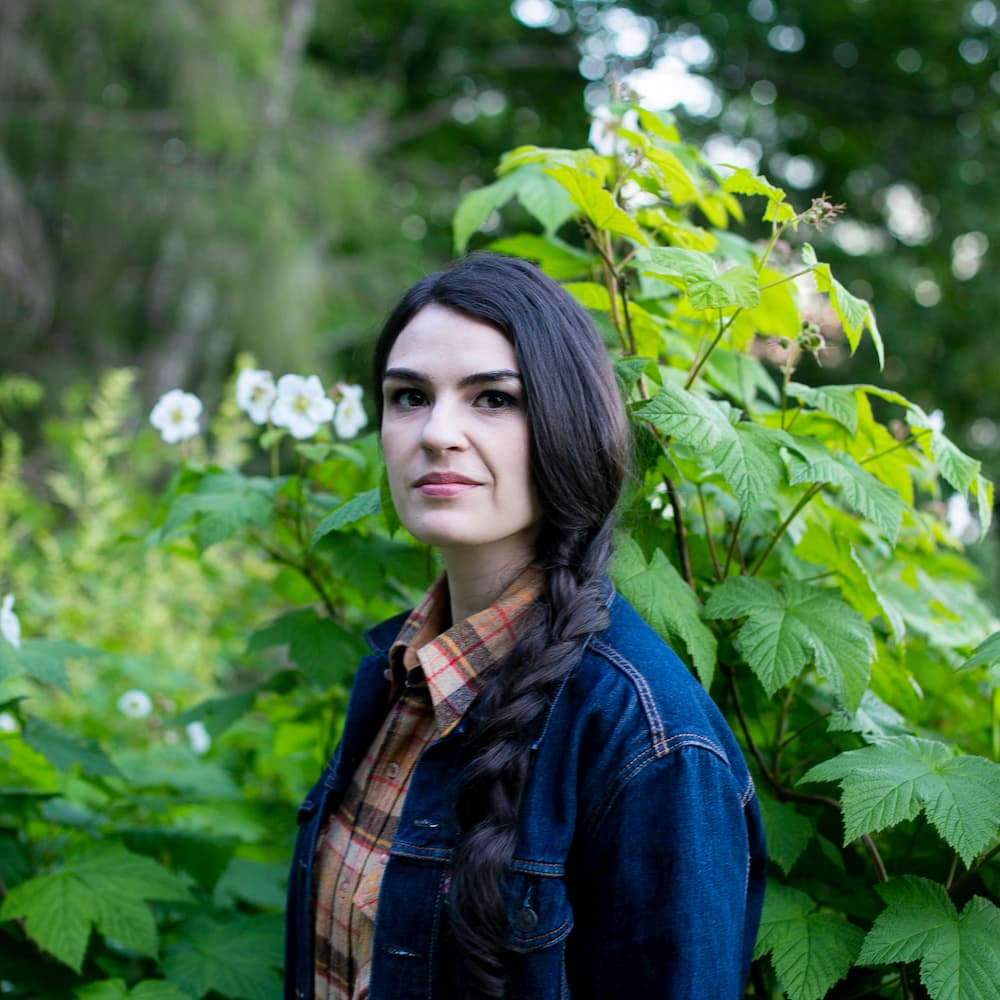Victorian Folk Opera Tells Stories of Women in 19th Century, Klondike Gold Rush-Era Alaska & the Yukon
After nearly a decade of performing in Alaska’s rowdy bar scene, Juneau folksinger Annie Bartholomew became haunted by the stories of sex workers during the 19th century after touring the brothel museum at Skagway’s Red Onion Saloon.
In contrast to the art created for tourists, Annie envisioned a musical work that would share these omissions of Alaska’s mining past, and embody the stories of women in Victorian-era Alaska. Through archival materials, personal history, and Alaska’s stringband traditions, Bartholomew brings these women to life, extracting the emotional truth of who they were, why they risked everything to follow a gold rush, and their subsequent journeys and misadventures along the way.
After conversations with her friend, Arkansas songwriter Willi Carlisle, the scope of the project came to include a play and stage show. The result is her debut album Sisters of White Chapel, out June 16. The music accompanies a play that she wrote Sisters of White Chapel: A Short But True Story, which premiered to acclaim in Bartholomew’s hometown of Juneau. The first single will be “Sisters of White Chapel,” referring to the red light district in Dawson City, expertly sets the scene in ensemble instrumentation is out today as the first single (OK to share).
Recorded in a timber frame log cabin with Gustavus-based producer Justin Smith and a cast of Alaskan artists, the folk sounds on Sisters of White Chapel personify these characters and paint the world of Victorian-era Alaska and the Yukon with acoustic guitars, banjos, fiddles, piano, upright bass, and mandolins. “All For the Klondike’s Gold,” which comes out as a single May 9, is accompanied by driving guitar and fiddle, and is sung by women, abandoned by their male companions but now joining together to survive the gold rush. “Dead Horse Trail” and “Feel My Sin” betray a blues influence. “Run Around Lucy” is destined to inspire concert sing-alongs. The close-sung “Mountain Dove Song” and “Last Confession” addresses the secrecy that these women needed to have to move on with their lives after sex work, with the latter speaking to the precarious nature of life in Alaska, with death often not far off. “Mountain Dove Song” will be the final single, out May 30.
Bartholomew threw herself into the research, in-person through Alaska and into the Yukon as well as archival material, historical memoirs, interviews with living historians, and the Library of Congress newspaper archives. One particular piece in the Klondike Nugget newspaper entitled “A Short But True Story”—about a woman who loses her provisions on the journey has to make the difficult choice to enter sex work—gave her a core storyline and opened the door to a whole world of hidden history. In turn of the century Alaska, she found women escaping abusive marriages, women seeking rich husbands and economic opportunity, those changing their identity to work as dancehall girls (women paid to dance with men) or other sex-work, and gals playing banjos and mandolins. “Presenting these women as complex, whole people is important to me,” she says. A first-time playwright working with historic texts, her new craft was helped by her background as a journalist and audio storyteller.
Along the way, the project became personal to Bartholomew. “I feel like narrowing the focus ended up revealing a lot about myself in the music,” she says, “I tried to put myself in the shoes of these gals, internalize a lot of their thoughts. So much hasn’t changed.” She could relate to these women and to the frontier culture that’s still alive in Alaska.
She emphasizes how this history has shaped generations, saying, “There is a legacy of oppression. Every woman has a mother or grandmother or great-grandmother who had to be strong and had to bend to the will of men in their lives, whether they were husbands or boyfriends or judges or children.”
Bartholomew also relates to the boom town nature of Alaska that lives on, something she especially experienced playing in a band in college in far-north Fairbanks, a place that attracts those who don’t fit in elsewhere. “Fairbanks is part of my fabric as an artist – taught me that you can do anything you want. It’s radical acceptance. You had to create a culture or else you won’t have one.”
Bartholomew developed the project in the Yukon as Jenni House artist-in-residence where she woodshedded with her banjo in a timber frame log cabin, learning the instrument for the project. Already a guitarist, Annie learned to play Clawhammer from Kaia Kater, studied with Evie Ladin during the pandemic, and has worked most closely with old-time music master and banjo maker Riley Baugus. She received a Rasmuson Project Award to commission the banjo featured on the album, and a Connie Boochever Fellowship through the Alaska Arts and Culture Foundation to adapt the play. She developed the project as a part of a year-long Alaska Writers Workshop through Theater Alaska in which she refined the play with a developmental reading with the Trinity Rep/Brown University graduate program for acting. Renowned director Heidi Handelsman traveled from San Diego to direct it at Juneau’s Treadwell Mine Office Building, Glory Hall, Riverside Rotary Park, and Mendenhall Valley Library. The project has already earned considerable acclaim in her home state with profiles in the Juneau Empire and Juneau NPR affiliate KTOO.
